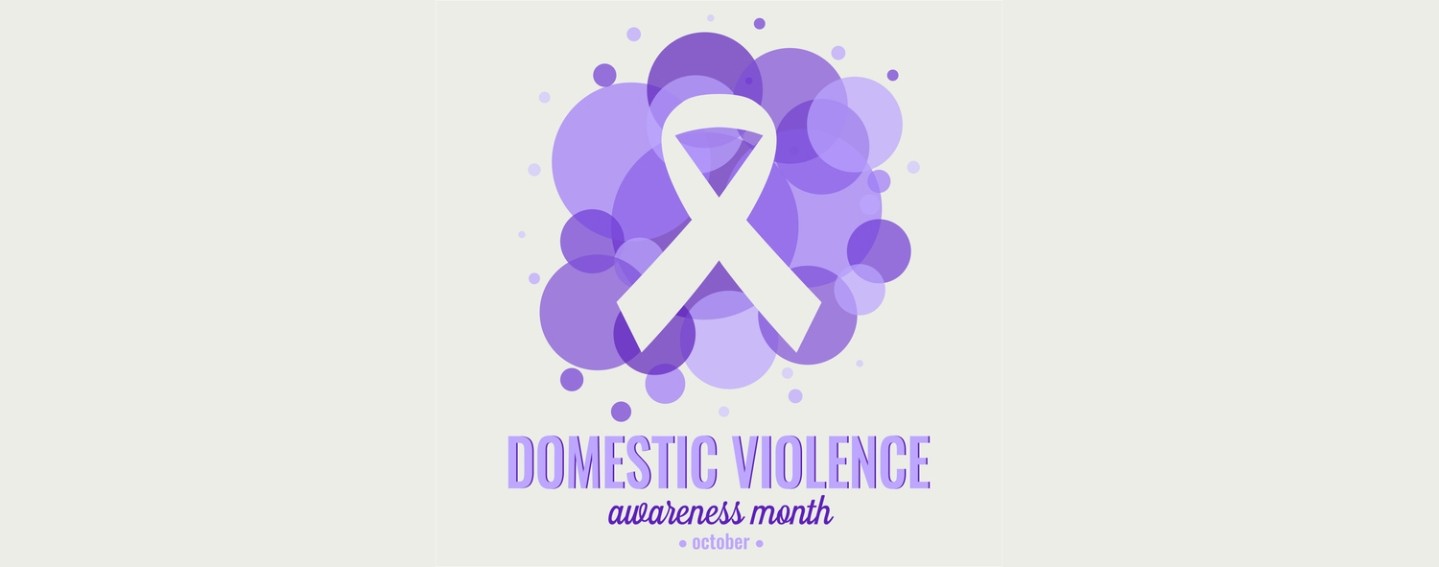Fueling Your Family's Future: A Doctor's Perspective on National Nutrition Month
MAR 01, 2026Good nutrition is about building a foundation for a vibrant, energetic, and disease-resistant life for you and your loved ones.
Read More
During the month of October it’s important to shed light on a topic that impacts many members of our community in honor of Domestic Violence Awareness Month. According to the Center for Disease Control and Prevention (CDC) 1 in 3 women have been physically assaulted by an intimate partner in their lifetime.
However, the rate is not that different for men either – the same study found that over 1 in 4 men have experienced physical assault by a partner. Although we typically associate the term domestic violence with physical aggression, it is important to note that intimate partner violence can also include financial, sexual, and emotional abuse.
When it comes to emotional abuse, it tends to be more difficult to detect. Emotional abuse is defined as an act in which someone is threatened or intimidated in some way, insulted or humiliated by their partner, or some other form of coercive control. It may surprise you to learn that over 48% of men and women have experienced at least one form of psychological aggression by an intimate partner.
It is important to note that domestic violence is not limited to heterosexual couples. In fact, intimate partner violence occurs at similar rates in the LGBT population.
How to Help a Friend You Suspect is Being Abused
With these alarming rates, you may be wondering, “How can I know if a loved one is being affected by domestic violence?”
Warning Signs to Look Out for are:
Step 1: Approach Your Loved One Gently
The most effective thing you can do for someone caught up in domestic violence is to listen. Although that person may not be ready to leave the relationship, set a time to talk, share concerns, and listen to how they’re feeling.
Step 2: Avoid the Tough Love Approach
Shaming your loved one or insisting they leave is typically quite ineffective, as there are often many legitimate reasons why someone would stay in an unhealthy relationship.
Some of These Reasons Include:
While it may be frustrating to watch a loved one return to an unhealthy relationship, the absence of your support can actually backfire. With fewer supports, your loved one is more likely to stay in the relationship. Instead, try to encourage them to engage in other activities outside of the relationship. By doing so, you can help them find local domestic violence resources.
How to Access Resources if You are Being Abused
When your partner is limiting your access to support, it may feel as if your world is getting smaller and smaller.
Some Resources are:
Many survivors use the word “trapped” when they describe the fear involved with making the decision to leave or trying to access help while still in the abusive relationship. Whatever your situation may be, know there is help and hope.
How to Get Help if You are the Perpetrator
There are a number of reasons why perpetrators of domestic violence harm their partners. Sometimes, this is learned behavior. In fact, many perpetrators grew up in a home where they witnessed abuse or were abused themselves.
Other Things That Can Lead to Being a Predator are:
Furthermore, belief in strict gender roles (e.g., male dominance and aggression in relationships) and relationship factors, such as recent conflict or marital instability, can precipitate instances of domestic violence.
It is strongly recommended that if you are concerned about your behavior, you remove any firearms in your possession and separate yourself from your partner temporarily. One way to allow yourself to cool down is to remove yourself from the argument until you can resolve it in a peaceful manner.
If you are concerned about your behavior and how it may be negatively impacting your partner, you are encouraged to call the National Domestic Violence Hotline at 1-800-799-SAFE (7233).
As a confidential hotline, it can be helpful to identify unhealthy behaviors while brainstorming alternatives. They can help develop strategies to control your anger, and this hotline can also get you established with a Battering Intervention and Prevention Program if you are interested.
Although domestic violence is often learned, the good news is that unlearning this pattern of behavior is possible. Reaching out for help to stop this cycle of abuse may just be the most powerful thing you ever do.
If you need help compassionately reaching out to a loved one caught up in domestic violence, please learn more about our SANE program.
Or you can always reach out to the CHI Health Information and Referral line at (402) 717-HOPE.
Resources:
Breiding, M. et al. (2014). Prevalence and characteristics of sexual violence, stalking, and intimate partner violence victimization – National intimate partner and sexual violence survey, United States, 2011. Centers for Disease Control and Prevention: Surveillance Summaries, 63(SS08) 1-18.
Office on Women’s Health. U.S. Department of Health and Human Services. https://www.womenshealth.gov/relationships-and-safety/get-help/how-help-friend.
Omaha Police Department: Domestic violence. https://police.cityofomaha.org/reporting-incidents/domestic-violence
The National Domestic Violence Hotline. https://www.thehotline.org/
Violence Prevention: Risk and protective factors. Centers for Disease Control and Prevention. https://www.cdc.gov/violenceprevention/intimatepartnerviolence/riskprotectivefactors.html
Women’s Center for Advancement. https://wcaomaha.org/
Original Published Date: Oct. 3, 2019
Revised Date: Oct. 1, 2020

Good nutrition is about building a foundation for a vibrant, energetic, and disease-resistant life for you and your loved ones.
Read More
WHNPs consider the intricate interplay of physical, emotional, social, and spiritual factors that impact your health.
Read More
On "You Matter Day" and every day, remember your inherent worth. If struggling, reach out to 988 or trusted contacts. You are not alone, and help is available.
Read MoreWhen you need local health information from a trusted source, turn to the CHI Health Better You eNewsletter.